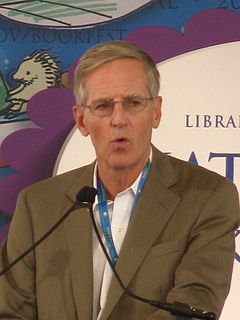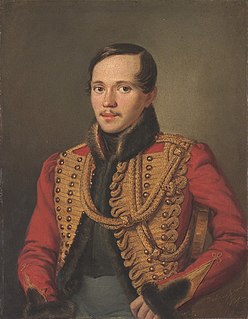A Quote by Ralph Waldo Emerson
Let it suffice that in the light of these two facts, namely, that the mind is One, and that nature is its correlative, history isto be read and written.
Related Quotes
We know only a single science, the science of history. History can be contemplated from two sides, it can be divided into the history of nature and the history of mankind. However, the two sides are not to be divided off; as long as men exist the history of nature and the history of men are mutually conditioned.
What are the facts? Again and again and again – what are the facts? Shun wishful thinking, ignore divine revelation, forget what “the stars foretell,” avoid opinion, care not what the neighbors think, never mind the unguessable “verdict of history” – what are the facts, and to how many decimal places? You pilot always into an unknown future; facts are your single clue. Get the facts!
No doubt Carlyle has a propensity to exaggerate the heroic in history, that is, he creates you an ideal hero rather than another thing.... Yet what were history if he did not exaggerate it? How comes it that history never has to wait for facts, but for a man to write it? The ages may go on forgetting the facts never so long, he can remember two for every one forgotten. The musty records of history, like the catacombs, contain the perishable remains, but only in the breast of genius are embalmed the souls of heroes.
There is no supernatural, there is only nature. Nature alone exists and contains all. All is. There is the part of nature that we perceive, and the part of nature that we do not perceive. ... If you abandon these facts, beware; charlatans will light upon them, also the imbecile. There is no mean: science, or ignorance. If science does not want these facts, ignorance will take them up. You have refused to enlarge human intelligence, you augment human stupidity. When Laplace withdraws Cagliostro appears.
The history of a man's soul, even the pettiest soul, is hardly less interesting and useful than the history of a whole people; especially when the former is the result of the observations of a mature mind upon itself, and has been written without any egotistical desire of arousing sympathy or astonishment. Rousseau's Confessions has precisely this defect – he read it to his friends.
We are deceived if we think that mind and judgment are two different matters: judgment is but the extent of the light of the mind. This light penetrates to the bottom of matters; it remarks all that can be remarked, and perceives what appears imperceptible. Therefore we must agree that it is the extent of the light in the mind that produces all the effects which we attribute to judgment.
The scientific observer of the realm of nature is in a sense naturally and inevitably disinterested. At least, nothing in the natural scene can arouse his bias. Furthermore, he stands completely outside of the natural so that his mind, whatever his limitations, approximates pure mind. The observer of the realm of history cannot be disinterested in the same way, for two reasons: first, he must look at history from some locus in history; secondly, he is to a certain degree engaged in its ideological conflicts.









































